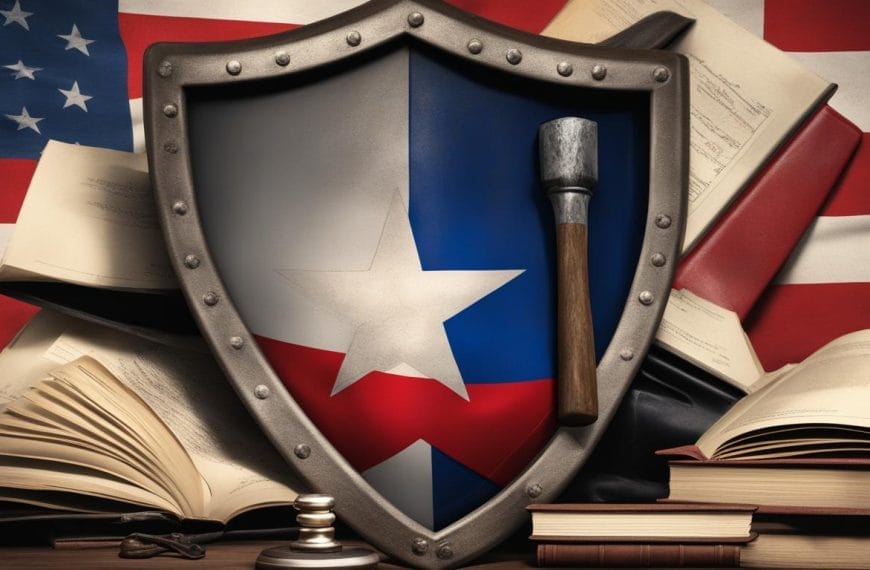Welcome to our article where we explore the ins and outs of 3rd degree assault in Colorado. If you’ve ever wondered what exactly constitutes this offense, the penalties associated with it, and the laws surrounding assault in Colorado, you’ve come to the right place.
Assault charges in Colorado can be a complex and serious matter, so it’s essential to have a clear understanding of the laws and potential consequences. By gaining insights into the specifics of 3rd degree assault, you can better protect your rights and make informed decisions in legal proceedings.
So, what is 3rd degree assault in Colorado? It is classified as a Class 1 misdemeanor offense where one knowingly, recklessly, or with criminal negligence causes bodily injury to another person. While it might be the least severe type of assault in Colorado, it’s crucial to note the potential penalties and implications it carries.
In this article, we will delve into the elements of 3rd degree assault, the potential jail time involved, and the possible defenses that can be raised in response to these charges. We will also highlight related offenses and their consequences, such as domestic violence charges and second-degree assault.
Understanding the specifics of 3rd degree assault and its associated laws is important for anyone residing in or visiting Colorado. By being informed, you can take the necessary steps to protect yourself and navigate the legal landscape effectively.
So, let’s dive into Colorado assault charges and explore what you need to know about 3rd degree assault in the beautiful state of Colorado.
Colorado Criminal Law and Assault Charges
When it comes to understanding assault charges in Colorado, it’s important to have a grasp of the state’s criminal law. Assault is defined as the act of wrongfully hurting someone, and the state recognizes three degrees of assault: first-degree, second-degree, and third-degree assault.
In this section, we will focus on third-degree assault, which is covered under CRS 18-3-204. This offense involves causing bodily injury to another person and can be committed knowingly, recklessly, or with criminal negligence. It’s worth noting that the use of a deadly weapon is also a factor that can lead to a charge of third-degree assault.
To provide a clearer understanding, let’s take a closer look at the elements of third-degree assault in Colorado:
Elements of Third Degree Assault
Third-degree assault in Colorado is characterized by:
- Knowingly or recklessly causing bodily injury to another person
- Causing bodily injury with criminal negligence by means of a deadly weapon
It’s important to highlight that third-degree assault does not require the presence of serious bodily injury, but rather any bodily injury, including physical pain. A conviction for third-degree assault can result in penalties that include up to 18 months in jail and fines reaching $1,000.
To gain a more comprehensive understanding of the legal implications, let’s take a look at the following table:
| Assault Charge | Possible Penalties |
|---|---|
| Third-Degree Assault | Jail sentence of up to 18 months Fines of up to $1,000 |
Now that we have a clearer understanding of third-degree assault charges in Colorado, let’s explore the potential defenses that can be used to counter such charges in the next section.
Elements of Third Degree Assault
In Colorado, third-degree assault is classified as a misdemeanor offense. To understand the different elements of this charge, let’s break it down:
1. Knowingly or Recklessly Causing Bodily Injury
One of the key elements of third-degree assault is knowingly or recklessly causing bodily injury to another person. This means that the offender either intended to cause harm or acted in a way that disregarded the risk of injury to others.
2. Bodily Injury with Criminal Negligence by Means of a Deadly Weapon
Another element of third-degree assault is causing bodily injury with criminal negligence, specifically involving the use of a deadly weapon. This can include any object that is capable of causing serious harm or death.
It’s important to note that third-degree assault does not require the presence of serious bodily injury, but rather any bodily injury, including physical pain.
In Colorado, the statutes related to third-degree assault can be found in the Colorado Revised Statutes, (C.R.S. 18-3-204).
A conviction for third-degree assault in Colorado can result in penalties including up to 18 months in jail and fines of up to $1,000.
Understanding the specific elements of third-degree assault is crucial when facing charges or working on a defense strategy. Seeking legal advice from an experienced attorney is recommended to navigate the complexities of misdemeanor assault in Colorado.
Defenses to Third Degree Assault Charges
When facing third-degree assault charges in Colorado, defendants have various defenses available to them to challenge the accusations against them. Understanding these defenses can be crucial in building a strong case and protecting their rights.
Self-Defense and Defense of Others
One common defense to third-degree assault charges is self-defense or defense of others. If the defendant can demonstrate that they reasonably believed they were in imminent danger of bodily harm, they may be justified in using force to protect themselves or someone else.
This defense requires proving that the force used was necessary and proportional to the perceived threat. The defendant must show that they did not initiate the confrontation and had a reasonable belief that force was needed to prevent harm.
Lack of Intent
In some cases, a defendant may argue that they lacked the necessary intent to commit the crime of assault. This defense typically applies when the alleged act was accidental or unintentional.
For example, if an individual bumps into someone and causes them harm unintentionally, it may be claimed as a lack of intent. The defendant must show that there was no deliberate action or intent to cause harm.
Proving False Accusations
False accusations can be a powerful defense against third-degree assault charges. It may be argued that the alleged victim made the accusation for personal gain, revenge, or to falsely incriminate the defendant.
By presenting evidence that casts doubt on the credibility of the accuser or shows a motive for false accusations, the defense can undermine the prosecution’s case.
Overall, understanding the legal definitions of assault in Colorado, as well as the available defenses such as self-defense, lack of intent, and false accusations, is essential when facing third-degree assault charges. Consulting with a knowledgeable criminal defense attorney can help defendants navigate the legal process and develop an effective defense strategy.
Potential Jail Time for Third Degree Assault
Violations of third-degree assault in Colorado are classified as class 1 misdemeanors and are subject to the modified sentencing range specified in section 18-1.3-501(3) of Colorado Revised Statutes. This means that a conviction for third-degree assault can result in a jail sentence of up to 18 months. However, it’s important to note that the actual sentence will depend on the specific circumstances of the case, the defendant’s criminal history, and other factors considered by the judge during sentencing.
When determining the appropriate sentence for third-degree assault, the court takes into account various factors, including the severity of the victim’s injuries, the presence of any aggravating factors, and the defendant’s prior criminal record. Aggravating factors could include the use of a deadly weapon, the commission of the offense in the presence of a child, or the assault being perpetrated against a peace officer or emergency medical service provider engaged in their official duties.
For a first-time offender with no aggravating factors, a jail sentence may be less likely, and alternatives such as probation, community service, or a combination of these may be considered. On the other hand, repeat offenders or those who have committed the assault under particularly egregious circumstances may face more severe sentences, including the maximum jail time.
It’s crucial to consult with an experienced criminal defense attorney to understand the potential consequences and build a strong defense strategy against third-degree assault charges. With their expertise, they can analyze the specific details of your case, advocate for your rights, and work towards achieving the best possible outcome.
Related Offenses and Consequences
Alongside or in addition to a third-degree assault charge, several related offenses may be filed. Understanding these charges and their potential consequences is crucial for individuals facing legal proceedings. The related offenses include:
- Domestic Violence Charges: Domestic violence charges can enhance the penalties of a third-degree assault conviction, as they involve acts of violence against a family or household member. Accused individuals may face additional legal and personal consequences due to the domestic nature of the offense.
- Second-Degree Assault: Second-degree assault is a more severe offense where intentional conduct causes serious bodily injury to another person. Unlike third-degree assault, second-degree assault requires proof of intent to cause harm.
- Menacing: Menacing is the act of knowingly placing someone in fear of imminent serious bodily injury. This offense encompasses threatening behavior that instills fear and can lead to criminal charges when directed towards another individual.
Understanding how these related offenses intersect with third-degree assault charges is crucial for building a strong defense strategy. Consulting with a knowledgeable criminal defense attorney can provide valuable guidance on the potential consequences of these offenses and the best course of action for the accused.
| Related Offenses | Description |
|---|---|
| Domestic Violence Charges | Acts of violence committed against a family or household member, which can enhance the penalties of a third-degree assault conviction. |
| Second-Degree Assault | A more severe offense involving intentional conduct that causes serious bodily injury to another person. |
| Menacing | The act of knowingly instilling fear in someone by threatening behavior, making them believe they are about to suffer serious bodily injury. |
Conclusion
Understanding 3rd degree assault in Colorado is crucial for individuals navigating the state’s criminal law and potential assault charges. By familiarizing themselves with the elements of the offense, available defenses, and the consequences of a conviction, individuals can protect their rights and make informed decisions throughout their legal proceedings.
If someone is facing charges of third-degree assault or related offenses, it is imperative to seek legal counsel from a reputable Denver criminal defense attorney. These professionals can provide invaluable guidance and assist in developing a strong defense strategy tailored to the specific case. Their expertise and knowledge of Colorado’s assault laws can greatly increase the chances of achieving a favorable outcome.
Remember, when dealing with the complexities of assault charges, it is always better to have professional legal representation. A skilled defense attorney can help minimize the impact of the charges, protect your rights, and ensure a fair and just resolution to the case. Don’t hesitate to reach out for assistance and take control of your legal situation.
Source Links
- https://www.shouselaw.com/co/defense/laws/assault/3rd-degree/
- https://www.hmichaelsteinberg.com/when-you-are-charged-the-colorado-third-degree-assault-law.html
- https://www.denver-colorado-criminal-lawyer.com/colorado-felony-and-miisdemeanor-assaults-three-classes-first-degree-assault-18-3-202-second-degree-18-3-203-and-third-degree-assault-18-3-204













